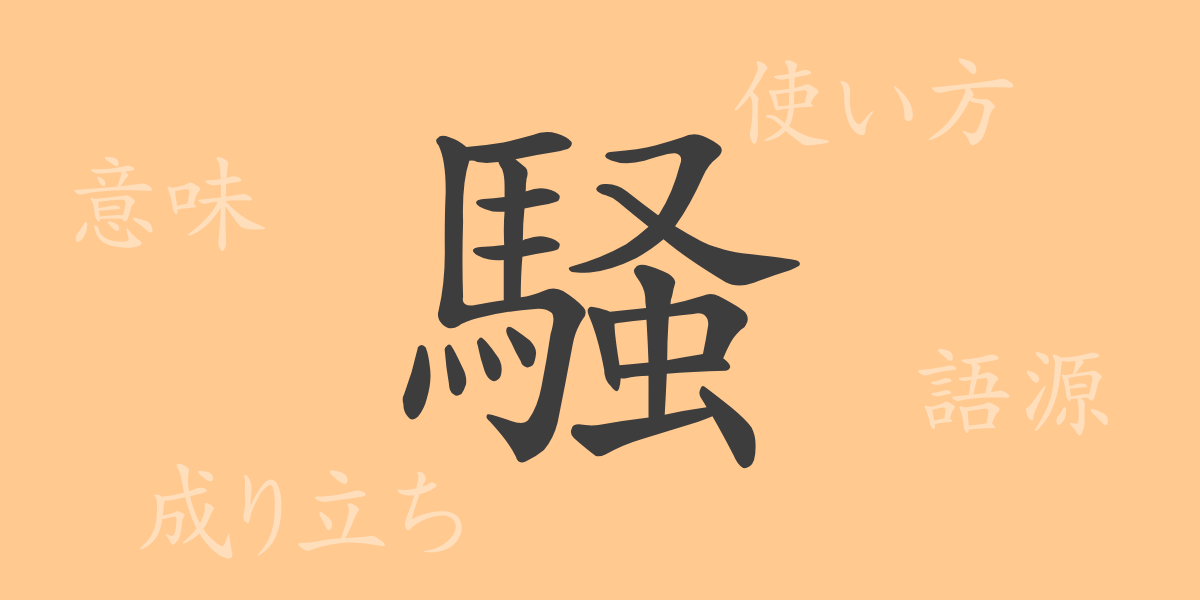Japanese Kanji characters, commonly used in daily life, often express emotions and actions. One such character is ‘騒’ (そう – sō), frequently encountered in our daily experiences. This article delves into the meanings, origins, and uses of ‘騒’, inviting you to explore the rich expressive power of this Japanese character.
Origins of 騒 (そう – Sō)
The Kanji ‘騒’ originated in ancient China, initially depicting the vigorous movements of a horse. This imagery led to the association with noisy and bustling human activities, eventually giving rise to the meanings ‘to make noise’ and ‘to disturb’. Over time, this character was adopted into Japanese, where it developed unique applications and expressions.
Meaning and Usage of 騒 (そう – Sō)
‘騒’ primarily means ‘noisy’ or ‘to make noise.’ It is also used to describe psychological agitation and confusion. Commonly seen in nouns like ‘騒音’ (noise) and ‘騒動’ (disturbance), it also appears as a verb ‘騒ぐ’ (to make noise) and an adjectival verb ‘騒がしい’ (noisy).
Readings, Stroke Count, and Radical of 騒 (そう – Sō)
Understanding the structure and readings of the Kanji ‘騒’ can enhance your comprehension of its application:
- Readings: On’yomi (音読み) ‘ソウ’ (Sō), Kun’yomi (訓読み) ‘さわ.ぐ’ and ‘さわ.がしい’
- Stroke Count: ‘騒’ consists of 17 strokes.
- Radical: The radical for ‘騒’ is ‘馬’ (horse).
Phrases and Idioms Using 騒 (そう – Sō) and Their Meanings
The character ‘騒’ is featured in a variety of idioms and phrases, each reflecting its symbolic representation of noise and commotion:
- 騒音 (そうおん – sōon): Unpleasant or loud noise.
- 騒動 (そうどう – sōdō): A significant disturbance or commotion caused by a group of people.
- 騒然 (そうぜん – sōzen): A state of being noisy or tumultuous.
- 騒ぎ立てる (さわぎたてる – sawagitateru): To make a loud noise or fuss.
- 波風を立てる (なみかぜをたてる – namikaze wo tateru): Literally ‘to raise waves and wind,’ used metaphorically to describe causing a commotion or stir.
Conclusion on 騒 (そう – Sō)
The Kanji ‘騒’ vividly conveys the intensity and dynamism of noisy activities. It is aptly used to describe various noisy events in life, enriching the vocabulary with its extensive use in idioms and phrases. Through this article, we hope you have gained a deeper understanding of ‘騒’ and its diverse meanings and applications. Whenever you encounter ‘騒’ in conversation or literature, it can serve as a reminder of the rich history and cultural depth it carries.

























